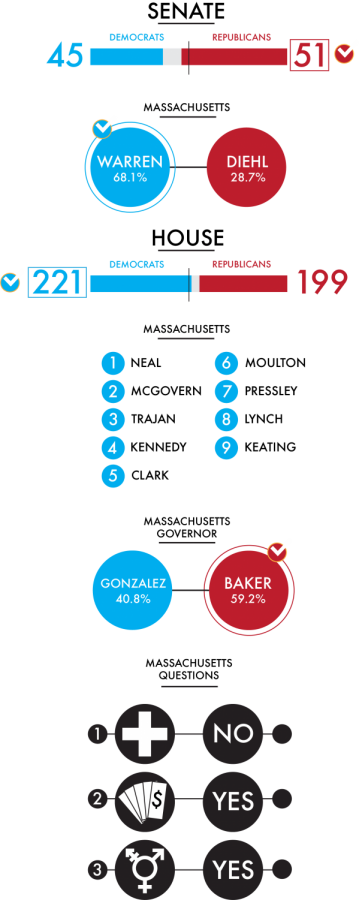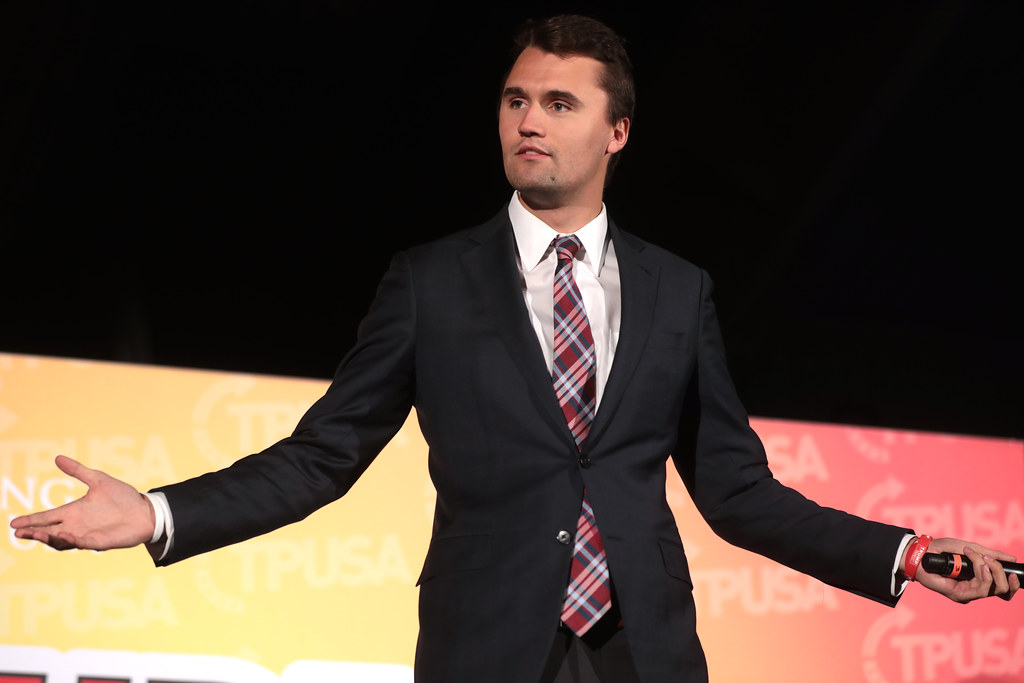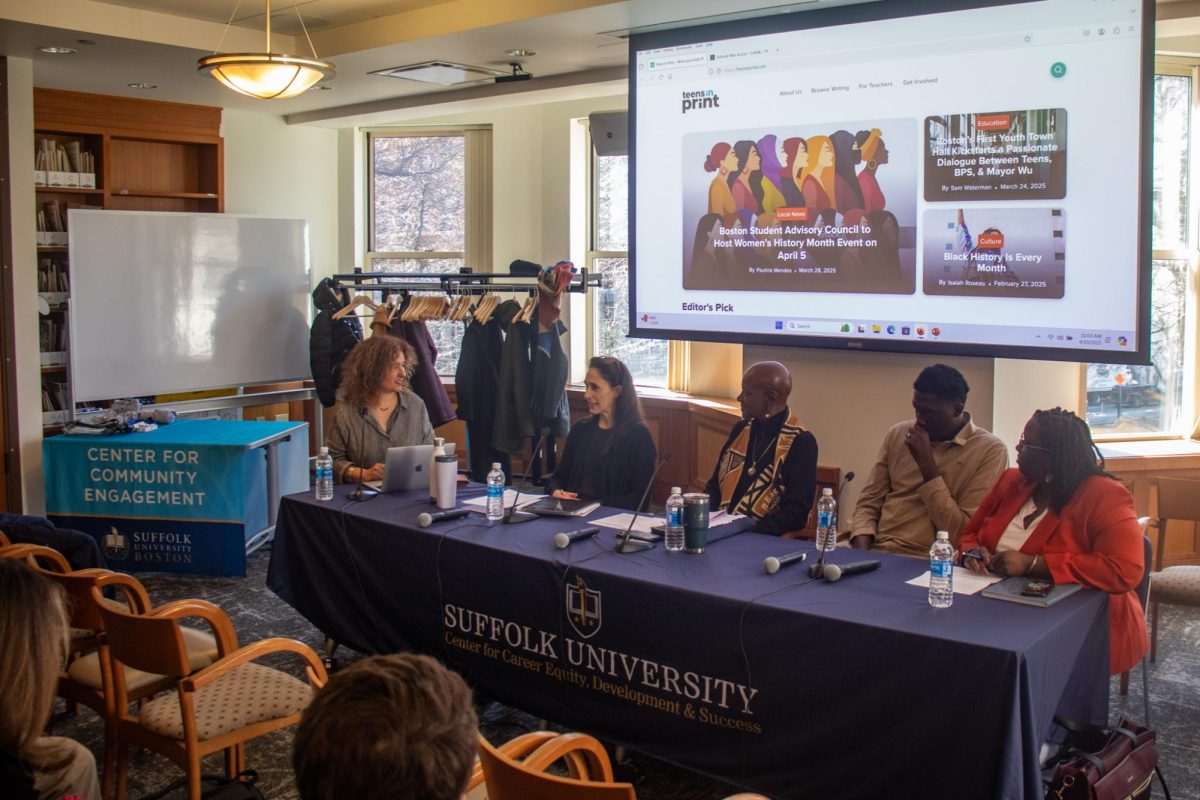Voters across the nation flocked to voting booths to cast their ballot in Tuesday’s midterm election. Democrats took back control of the U.S. House of Representatives, while Republicans retained majority control over the U.S. Senate.
Charlie Baker, incumbent Republican Governor of Massachusetts for the last four years, was challenged by Democrat Jay Gonzalez, a former state cabinet secretary. In a 34 percent margin, Baker won, securing his spot as a state governor for the next four years.
David Paleologos, the director of Suffolk University’s Political Research Center, spoke on Baker’s successful reelection, despite Massachusetts’ Democratic majority.
“I look at Charlie Baker and I say there couldn’t have been a worse time for a white male Republican running for Governor in a deep blue state with only 11 percent of registered voters being Republican, and in the midst of all of that, the House of Representatives flipping Democratic nationally, and yet here’s a guy who is leading by who knows what the final numbers will be” said Paleologos in an interview with The Suffolk Journal. “Even in our poll he had a 73 percent favorable rating and 73 percent job approval.”
Matthew Cubetus, president of the Suffolk University College Democrats and PPE and history double major, spoke on the race for the governorship.
“I don’t think Jay Gonzalez had enough help from Beacon Hill,” said Cubetus in an interview with The Suffolk Journal late Tuesday night. “It’s disappointing to see the complacency from the [Democrats] on Beacon Hill. [The] people of Massachusetts are no longer going to stand by with lame leaders and complacency, they are going to fight back.”
In the Massachusetts race for U.S. Senator, incumbent Elizabeth Warren (D) won against state legislator Geoff Diehl (R) and Shiva Ayyadurai, an Indian born American scientist and entrepreneur running as an independent.
The state’s representation in the U.S. House of Representatives will remain entirely democratic with all nine districts putting forward a democratic representative.
Four representatives were re-elected unopposed; Richard Neal (1st District), Joseph Kennedy III (4th District), Ayanna Pressley (7th District) and Stephen Lynch (8th District).
In September’s Democratic primary election, Ayanna Pressley made history when she beat 10-term incumbent Michael Capuano for House representative for Massachusetts 7th congressional district, in which Boston is a part of.
The Democrats needed a net gain of 23 seats in order to win the House of Representatives from the Republicans majority, which began in 2010. By 4:00 am, the Democrats had taken back 26 GOP-held seats, officially giving Democrats control of the House.
“The Democratic party has to be very measured in how they approach the next two years. They don’t want to hand Trump an issue where the democratically controlled House becomes belligerent and obstructs the ability of the country to move forward because Donald Trump will talk about that for two years and say ‘This is the reason why you need to re-elect me, this is the reason why we need to go back to a Republican House,’” said Paleologos in an interview with The Journal Tuesday night. “I think what has to happen is that both parties have to take a cumulative deep breath, reevaluate where they are and then proceed in a very measured way.”
With control of the House returning to Democrats, representatives will have the ability to veto Trump’s law proposals and to launch investigations into his administration.
Despite this victory for Democrats, the Republican majority maintained their hold on the U.S. Senate by unseating a string of Democrats up for re-election. With the Left’s hope for a “blue wave” thwarted, allowing Republicans to push ahead with controversial judicial and cabinet appointments with less fear of rebellion.
“I would say that unequivocally the Republicans won this election. Even though the Democrats won the House, they didn’t win. Most of what I saw was just incumbents winning the same places they always have,” said Kutter McNeil, a Suffolk junior and PPE major, in an interview with The Suffolk Journal. “It just goes to show that the Democrats still don’t have a new message.”
Along with government officials, Massachusetts voters were also given the option to vote on three ballot questions, each brought forward by citizens into the political arena.
Question 1 proposed a law that would limit the number of patients a nurse can be assigned to at one time. After a heated debate on both sides, 70.2 percent of voters in Massachusetts voted “No,” which maintains no limit on the number of patients a nurse can take.
“That was another disappointing decision,” said McNeil. “I felt the hospitals themselves were just very misleading. I know a couple of nurses and I really do feel like they are overworked.”
McNeil was also critical of the double-negative phrasing of Question 1 as it appeared on the ballot.
“Because it was worded in the way it was, I am not sure that voters always knew which way they were voting, said McNeil. “It would be nice if there was a rule that said the questions had to be written in a way that a 10-year old could read it.”
Question 2 proposed the creation of a 15-member Citizens Commission whose purpose would be to amend the Constitution regarding corporate personhood and political spending. The commission could limit the rights of corporations given by the decision in the Supreme Court case Citizens United v. Federal Election Commission.
A negligible amount of spending was done in opposition to Question 2, according to the Office of Campaign and Public Finance. 71.3 percent of voters in Massachusetts voted “Yes.”
Question 3 proposed keeping in place the current law that prohibits discrimination associated with race, color, religious creed, national origin, sex, disability, ancestry and gender identity. This would continue the prohibition of discrimination in public places as well as in female/male restricted areas and advertisements.
Alex Ferreiras, a sophomore psychology major and Diversity Peer Educator with the Center for Student Diversity and Inclusion, discussed the importance of voting and recognition to members of the LGBTQ+ community, especially the transgender community.
“I think it was really important to go vote and do what [the LGBTQ+ community and allies] needed to do,” said Ferreiras. “I feel like [“Yes” on Question 3] won’t have day-to-day change. It will just make people more aware of the issue. I think it will cast a shadow for the rest of what we are going to see.”
The majority of Massachusetts state elections were won by Democratic incumbents. Maura Healey (D) won the race for attorney general, while William Galvin (D) won secretary of state. Deborah Goldberg (D) won an all-female race for treasurer, and Suzanne Bump (D) won the race for auditor that had candidates from several political parties.
“People are voting so much because of a combination of feeling they are unrepresented by their government, but also feeling that they could be represented if they voted someone new into office,” said Suffolk Government Professor John Berg in an interview with The Journal.
More than 3.3 million voters from ages 18 to 29 cast their midterm votes early; a 188 percent increase from 2014.
“I think there’s a lot of anger in this election. The Democrats feel a lot of anger toward the Trump administration, and Republicans feel a lot of anger toward things like the anti-Kavanaugh demonstrations,” said Berg. “There was a lot of passionate motivation on both sides.”






















